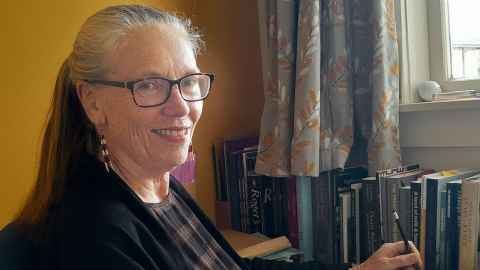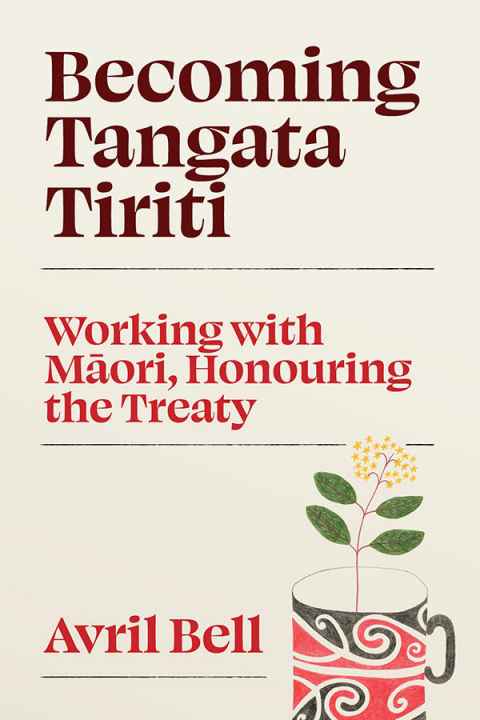The experiences and insights of people who work with, and for, Māori communities and whose work is guided by their commitments to te Tiriti o Waitangi, is the subject of a new book by sociologist Avril Bell.

How Pākehā/tauiwi have been responding to the changing position of Māori in terms of language, culture and tikanga in Aotearoa society over recent decades is the subject of a new book by sociologist Avril Bell.
Becoming Tangata Tiriti: Working with Māori, Honouring the Treaty (Auckland University Press) by Bell, who is an honorary associate professor of sociology at the University of Auckland, is launching on 8 August and has a particular focus on the world of work.
It brings together 12 non-Māori voices - dedicated professionals, activists and everyday individuals - who have engaged with te ao Māori and have attempted to bring te Tiriti to life in their work.
"While the current government is backtracking from Treaty-based policies, at the flaxroots level, the work just continues," says Bell.
"I think this government will be a small blip in time; you can't so easily turn back the gains that have been made since the 1970s and 80s."
She says post-settlement iwi and hapū are important economic actors in their local communities, which means that local councils, government departments such as DOC, and also private sector businesses, need to work with them and are keen to do so.
"And increasingly, there has been a growth in workplaces across the board developing te Tiriti policies and seeking relationships with Māori communities."
There has also been a massive groundswell of interest in, and a desire to forge connections with the Māori world, and in thinking about what the Treaty means for us today, she says.
"Especially in terms of our workplaces and the guidance it can offer in pursuing relationships in te ao Māori, and the obligations we need to uphold to be able to call ourselves 'treaty people'.
"One of the exciting things about talking with these amazing people was learning about how enriching this work was for them personally."
I think this government will be a small blip in time; you can't so easily turn back the gains that have been made since the 1970s and 80s.
Avril Bell, honorary associate professor of sociology Faculty of Arts
Bell hopes the book can be a useful resource for people whose work requires them to engage with the Treaty and with the Māori world, but are not quite sure where to start.
"It begins at the beginning, with how the people I interviewed first made a connection with the Māori world; it's sad that we live alongside Māori but mostly don't enter their world. I wonder how many New Zealanders have still never been on a marae, for example?"
She believes fear and anxiety often get in the way, as she discusses in the book.
"However, the bulk of the book explores the kind of work these tangata tiriti do, their strategies for working in ways that support Māori aspirations, and for being useful without dominating."
Those she interviewed also talk about what they have learnt from Māori and how their work has shifted and strengthened their own identities, says Bell.
"'Tangata tiriti' is an inclusive concept that embraces all New Zealanders who are here by right of te Tiriti. We are highly multicultural and we need to move past thinking in terms of Māori and Pākehā relationships.
"I believe the idea of tangata tiriti is a powerful way to reframe the treaty relationship more inclusively."
She says it was "a wonderful privilege" to talk with such a wide range of people.
"I really want to celebrate them and hope their insights can be helpful to others."







